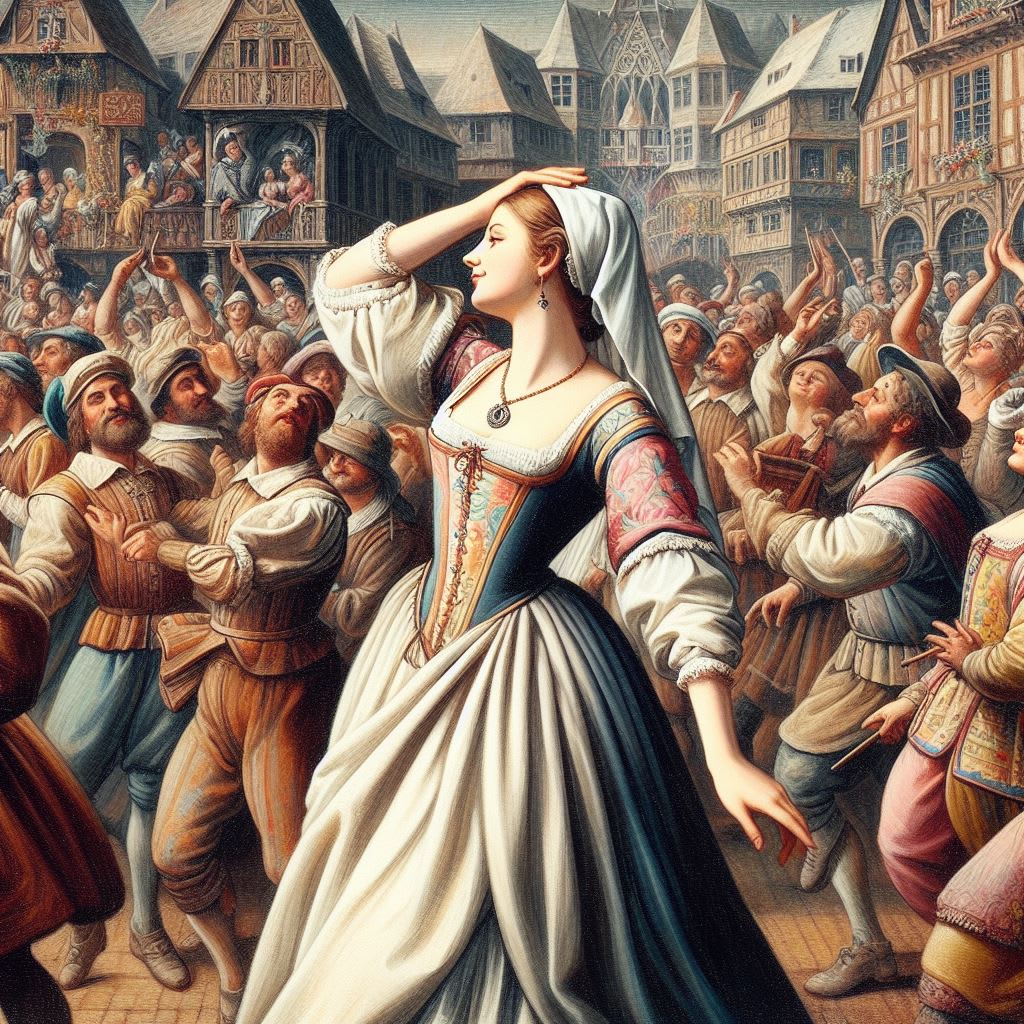The Medieval Mystery: The Unexplained Dancing Plague of 1518
Have you ever heard of a town where people danced uncontrollably for days on end?** This isn't a scene from a wild party movie; it's the bizarre true story of the Dancing Plague of 1518! Fasten your seatbelts and get ready for a captivating journey into the past.

A Day Unlike Any Other
Imagine a beautiful summer day in Strasbourg (present-day France) in July 1518. Suddenly, a woman named Frau Troffea bursts onto the street and begins dancing uncontrollably. No music, no celebration, just a series of frantic twists and turns. The onlookers are stunned. But things get even stranger.
A Desperate Search for Answers
Over the next few days, something inexplicable happens. One by one, people join Frau Troffea. They dance for hours, days, even weeks, under the scorching sun. Their clothes become soaked with sweat, their bodies scream in exhaustion, but they can't stop. The once peaceful town turns into a scene of mass hysteria.As People danced themselves to exhaustion, collapsing from dehydration and heart strain. The bewildered townsfolk, including physicians, were clueless. The prevailing theory? "Hot blood," a vague notion similar to a fever. Their solution? Make them dance it out! A stage was erected, musicians hired, hoping to somehow expel this mysterious affliction through sheer movement.
The Unexplained End
After three agonizing months, the dancing craze mysteriously subsides. The dancers are taken to a mountaintop shrine, a final act of desperation seeking divine intervention. Similar, though less severe, outbreaks had occurred in Europe before, but none as widespread or dramatic as this.
Theories and Controversy
Centuries later, the Dancing Plague of 1518 remains an enigma. Modern theories range from mass psychogenic illness (mass hysteria) to ergot poisoning.
Ergot is a fungus that grows on eye and can cause hallucinations and convulsions. However, some argue that the scale of the outbreak and the diverse climates where similar dancing manias occurred make ergot poisoning unlikely.
Stress, Superstition, and Social Contagion:John Waller, a medical historian, suggests stress as a key factor. Strasbourg faced hardships like poor harvests, which could have fueled anxieties and mass hysteria. Superstition also played a role. People feared divine punishment for their transgressions, manifesting in the uncontrollable dancing.
Religious Fervor:St. Vitus' Dance, a supposed religious curse that caused uncontrollable shaking, was a popular belief at the time. Could mass hysteria have fueled the dancing?
The Legacy of the Dance
The Dancing Plague may be a historical oddity, but its captivating story continues to inspire artists and writers. Hans Christian Anderson's chilling fairy tale, "The Red Shoes," reflects the dangers of uncontrolled dancing. This event serves as a reminder of the power of the human mind and the strange ways it can react to pressure and fear.
Dancing Throughout History and Cultures
While the Dancing Plague was a dark episode, dance itself is a vibrant thread woven into the tapestry of human cultures. From the storytelling dances of African tribes to the powerful Haka of New Zealand and the theatrical Kabuki of Japan, dance transcends mere entertainment. It's a language, a celebration, a form of expression deeply embedded in our global heritage.
So next time you find yourself at a pulsating dance floor, remember the Dancing Plague. It's a stark reminder of the strange and fascinating ways the human body and mind can react to the pressures of life.





Comments
There are no comments for this story
Be the first to respond and start the conversation.